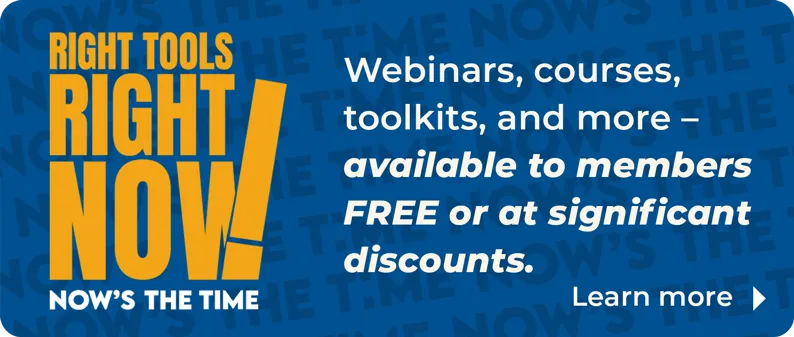
Brokers: Helping your salespeople understand the power of data is key to building a stronger, more informed team. Real estate markets are constantly shifting—driven by economic factors, interest rates and evolving housing policies—and agents need to be equipped to interpret those changes with confidence.
By teaching your agents to use market data effectively, you empower them to set realistic expectations, anticipate market trends and guide clients through complex decisions. When agents rely on data rather than assumptions, they position themselves as trusted advisers—offering clients insights that inspire confidence and lead to better outcomes for everyone involved.
Use Data to Help Set Realistic Expectations
Buyers and sellers often have unrealistic views of the market based on emotions, misinformation or dated information. Sharing data helps agents ground clients in what’s actually happening in the market.
For buyers, agents can share such data as:
- Current price per square foot
- Median prices in different neighborhoods
- Inventory trends
This can help buyers set a realistic budget and timeline, preventing any unrealistic expectations.
Sellers may overestimate the value of their home based on personal attachment or out-of-date information. Agents can share:
- Recent selling prices and market trends
- A comparison of their home to recently sold homes or current inventory
This can ensure sellers list their homes at a competitive price to avoid extended market time. Agents can also use market data to strengthen their marketing, such as sharing a comparative market analysis that highlights similar properties and selling prices to show the true value of a listing.
Tools to Leverage Market Data
Part of your role as a broker is to guide agents toward best practices and useful information to help them succeed in their business. One way to do this is to equip them with comprehensive and reliable data to serve their clients well. Here are some key tools that you can encourage agents to utilize:
1. Multiple Listing Service (MLS)
The MLS is a fundamental resource for brokers and agents. It provides the most accurate and up-to-date property listings, sales trends and market analyses. Agents should use the MLS not only for listing properties but also to study trends, average days on market and pricing data to inform their client strategies.
2. Local Association Reports
Many local and state associations publish an array of reports that agents can leverage their own knowledge and help their clients. The Orlando Regional REALTOR® Association, for example, publishes regular market reports that focus on local trends, median home prices, inventory levels and other relevant data points specific to the agent’s market. At the state level, for example, the California Association of REALTORS® provides monthly reports on pricing and sales statistics, as well as historical housing data. These reports provide a wealth of market-specific information that helps position agents as experts. Brokers can encourage agents to use these reports to stay up to date on market conditions and keep their clients informed as well.
Another member-exclusive tool, Realtors Property Resource®, offers access to detailed property information such as listings, tax and mortgage records, sales history and market trends. RPR also includes tools that help agents analyze data, prepare reports and better inform their clients across residential and commercial markets.
3. Publicly Available Tools
The National Association of REALTORS® offers data that is useful in understanding national trends. NAR offers robust data, statistics and reports on buyer and seller trends, market shifts and industry trends based on what industry professionals are seeing in the field. These resources can help agents see the big picture of how their local market fits into national dynamics.
4. Data-Driven Software Tools
In the age of technology, there are many predictive analytics platforms and customer relationship management systems designed specifically for real estate. These tools can help agents predict market trends and provide automated insights on property values, helping agents offer timely advice to their clients. NAR reports that 64% of agents say their motivation for adopting new technology is to enhance the client experience, demonstrating how vital these tools have become in building stronger, more informed client relationships.
For instance, HouseCanary, a leading predictive analytics platform, uses AI to analyze thousands of data points—like local market trends, property characteristics and historical sales data—to generate accurate property valuations and investment forecasts.
Additionally, Cotality (previously CoreLogic) provides AI-powered real estate analytics and data tools for agents, lenders and home service professionals. Using an extensive dataset, the platform uncovers market trends, property insights and growth opportunities to help agents make smarter, data-driven decisions.
Because RPR offers data on millions of residential and commercial properties nationwide and integrates with most MLSs, users can create customized commercial and residential client reports and use RPR's built-in AI to develop scripts, branded social media assets and PowerPoint slides.
Continuous Training
Providing your agents with the knowledge to interpret and use data is a game changer in today’s market. Brokers should be aware of and make maximum use of training opportunities from their solution providers to ensure their agents are getting the most from their tools—and they should seek feedback from agents to make sure they feel comfortable using the tools and are seeing a benefit.
Creating a data-driven culture starts with the understanding that embracing a data-driven mindset helps the brokerage and the agents stay competitive. Encourage agents to bring data into everyday conversations with clients, which builds trust and confidence in their expertise.
Buyers and sellers rely on accurate, up-to-date information to make informed decisions, and agents are the key interpreters of this data.
Equipped with the right tools, your agents will create greater satisfaction and build lasting relationships with clients who trust them as market experts.









